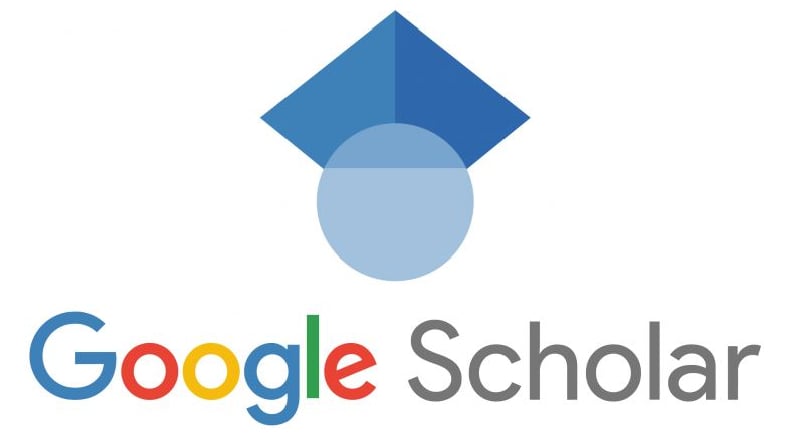Genre-Based Approach Listening Instruction: A Case Study in a Blitar Senior High School
Keywords:
Genre-Based Approach (GBA); Teaching Listening; Indonesia; Qualitative Case StudyAbstract
This qualitative case study investigates the implementation of the Genre-Based Approach (GBA) in teaching listening skills to 10th-grade students at SMAN 1 Sutojayan, Indonesia. Employing observations and interviews, the research explores the effectiveness of GBA in a practical classroom setting. Findings indicate that while GBA provides a sound theoretical framework, its success hinges on comprehensive preparatory activities, particularly pre-listening tasks that build vocabulary and contextual understanding. The study highlights the need for differentiated instruction to address varying student proficiency levels and recommends targeted pre- and post-listening activities to boost comprehension and engagement. The outcome of this research is a framework for teaching listening using the Genre-Based Approach. This framework can serve as a guide for applying the same method in other schools. Overall, the research underscores the potential of GBA in enhancing listening skills, suggesting that its effectiveness can be significantly amplified through meticulous implementation and support. Future research should investigate additional strategies to further tailor GBA to diverse student needs and promote overall engagement in listening
Downloads
References
Arisyandi, H. (2023). The impact of genre knowledge on effective writing instruction. Journal of Language and Education, 17(2), 145–158. https://doi.org/10.24392/jle.v17i2.149
Aswani, A., Simatupang, N. N., Yusuf, M., & Kasa Rullah Adha, T. (2023). Genre-based approach implementation in teaching listening: A case study in senior high school in Indonesia. Theory and Practice in Language Studies, 13(5), 1197–1203. https://doi.org/10.17507/tpls.1305.13
Birbiatazzahro, N. (2019). The versatility of genre-based approach in addressing various language skills. TESOL Quarterly, 53(3), 624–649. https://doi.org/10.1002/tesq.2024
Cahyono, S. P. (2017). The implementation of genre-based approach to teaching narrative listening. In Proceedings of the Fifth Yogyakarta International Conference on Educational Management/Administration and Pedagogy (YICEMAP 2017) (pp. 49-53). Atlantis Press. https://doi.org/10.2991/yicemap-17.2017.49
Creswell, J. W., & Poth, C. N. (2018). Qualitative inquiry and research design: Choosing among five approaches (4th ed.). SAGE Publications.
Denzin, N. K., & Lincoln, Y. S. (Eds.). (2018). The SAGE handbook of qualitative research (5th ed.). SAGE Publications.
Derewianka, B. (2018). A new grammar companion for teachers. PETAA.
Feng, Z., & Zhang, D. (2019). The impact of genre-based approach on EFL learners' listening comprehension skills. Journal of English for Academic Purposes, 38, 41–52. https://doi.org/10.1016/j.jeap.2018.12.004
González, R. (2021). Factors and outcomes of a genre-based approach to listening instruction. Journal of Second Language Teaching & Research, 9(2), 112–130. https://doi.org/10.7575/j2sltr.v9n2p112
Greenwalt, K. A. (2016). Dewey on teaching and teacher education. In M. Peters (Ed.), Encyclopedia of educational philosophy and theory (pp. 1-5). Springer Singapore. https://doi.org/10.1007/978-981-287-532-7_48-1
Hermansson, C., Jonsson, B., Levlin, M., Lindhé, A., Lundgren, B., & Norlund Shaswar, A. (2019). The (non)effect of joint construction in a genre-based approach to teaching writing. Journal of Educational Research, 112(4), 483–494. https://doi.org/10.1080/00220671.2018.1563038
Hoque, M. E. (2016). Teaching approaches, methods, and techniques. https://doi.org/10.13140/RG.2.2.21377.66400
Hyland, K. (2019). Genre-based pedagogies: A social response to process. Bloomsbury Publishing.
Hyland, K. (2021). Second language writing. Cambridge University Press.
Kusumahati, A., Sumarjo, & Yulianti, F. (2023). Efforts to improve speaking ability of XI PPLG 2 using genre-based approach assisted by Canva. Prosiding Seminar Nasional Pendidikan Profesi Guru, 1(2), 439–446. Retrieved from https://conference.upgris.ac.id/index.php/psnppg/article/view/5137
Martin, J. R., & White, P. R. R. (2020). The language of evaluation: Appraisal in English. Palgrave Macmillan.
Maulani, A. (2021). The use of genre-based approach (GBA) to improve students’ writing descriptive text. Channing: Journal of English Language Education and Literature, 6(1), 6–9. Retrieved from https://journal.unuha.ac.id/index.php/Channing/article/view/1014
Miles, M. B., Huberman, A. M., & Saldaña, J. (2014). Qualitative data analysis: A methods sourcebook (3rd ed.). SAGE Publications.
Miles, M. B., Huberman, A. M., & Saldaña, J. (2023). Qualitative data analysis: A methods sourcebook (4th ed.). SAGE Publications.
Nurhayati, D., & Nuraini, R. (2016). The significance of English in Indonesia: Implications for language instruction. Indonesian Journal of Applied Linguistics, 6(2), 231–245. https://doi.org/10.17509/ijal.v6i2.3541
Pishkar, K. (2015). Importance of genre awareness in language learning. International Journal of English Linguistics, 5(4), 75–88. https://doi.org/10.5539/ijel.v5n4p75
Rahayungsih, R. (2015). Cross-skill benefits of genre-based approach. International Journal of Language and Linguistics, 3(5), 91–103. https://doi.org/10.11648/j.ijll.20150305.13
Rose, D. (2019). Learning to write, reading to learn: Genre, knowledge, and pedagogy in the Sydney school. Equinox.
Sunarti, T. (2019). Effectiveness of genre-based approach beyond high school. Journal of English Language Teaching, 5(1), 77–90. https://doi.org/10.24036/jelt.v5i1.10768
Widodo, H. P. (2018). Making EFL instruction more meaningful through genre-based pedagogy. Indonesian Journal of Applied Linguistics, 8(2), 311–321. https://doi.org/10.17509/ijal.v8i2.13277
Yin, R. K. (2014). Case study research: Design and methods (5th ed.). SAGE Publications.
Yin, R. K. (2018). Case study research and applications: Design and methods (6th ed.). SAGE Publications.
Downloads
Published
How to Cite
Issue
Section
License
Copyright (c) 2024 Anggun Nilam Cahya, Hesty Puspita Sari, Nita Sutanti, Yusniarsi Primasari

This work is licensed under a Creative Commons Attribution 4.0 International License.






